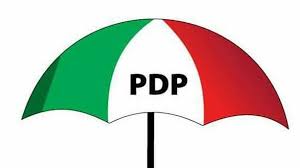To start with, from the 1950s “Africa” saw the recognition of foreign media radio stations broadcasting news in African languages through the three major spoken languages in Africa, namely, Hausa in West Africa, Swahili in East Africa, and Arabic in North Africa.
According to reports, BBC Hausa Service staff resigned to join the soon-to-launch Africa section of Turkish Radio and Television (TRT) in Istanbul. The Turkish government decided to establish TRT Africa: Hausa, Swahili, French and English for Africa. TRT wants us to change the narrative of storytelling.
Other international media organisations have been reporting mainly hunger, wars and other negative narratives about Africa. There are good, positive stories in Africa – business and employment opportunities. There are cultural values, sports, innovations; people that are involved in artificial intelligence-related work. These are what TRT Hausa Service will be covering. Many international media are not reporting these things.
Some “analysts” are of the opinion that the two major western blocs of the “Capitalist” and the “Socialist” set up broadcasting services in African languages in order to extend their politico-economic ideological campaigns across Africa. Immediately after the Second World War of 1939-1945 the Cold War era began. Cold War was an ideological warfare through the waging of “political”, “economic” “propaganda with limited recourse to weapons. The Cold War era sharply divided the world into two major politico-economic ideologies of the Capitalist West led by the United States of America and the Socialists East led by Russia.
In reactions to the Cold War era, we have had the Non-Aligned Movement which drew countries mostly from what was (or is) referred to as the “Third World” in their struggle against imperialism, colonialism, neo-colonialism, racism, and all forms of foreign aggression, occupation, domination, interference or hegemony as well as against great power and bloc politics.
However, for whatever “purpose” the foreign media were set up, one could say that the ordinary “Hausa” man has become more politically, economically, educationally, socially, and internationally “enlightened” and “exposed” than his peers through the influence of Radio Moscow World Service, Hausa (Russia) established in 1961, Radio Sin (China) International Hausa Service established in 1941, Deutechwelle Radio (Germany) Hausa Service established in 1953, British Broadcasting Corporation, BBC, Hausa Service established in 1957, Voice Of America, VOA, Hausa Service established in 1979, Radio Libya, Hausa; Radio Tehran (Iran) IRIB, Hausa Service ; and Radio Muryan Alkahira, Egypt Radio, Radio France International (RFI) established in 2007, etc.
The Hausa are equally blessed with their language being taught as a course of study in universities in Germany, England, United States, Belgium, Netherlands, Poland, Portugal, Russia, Sweden, Switzerland and many other African universities. A lot of European researchers study Hausa in order to make their research work easier in terms of data gathering, especially in West Africa and other parts of Africa. There are many Europeans who are professors in Hausa.
The Hausa people are the Kanawas, Hadejawas, Katsinawas, Daurawas, Sakkwatawas, Gobirawas, Kebbawas, Zamfarawas, Zazzagawas, and Jasawas etc.Hausa is being spoken in Nigeria, Niger, Benin, Cameroon, Ghana, Chad, Togo, Burkina Faso, Gabon, Gambia, Central African Republic, Equatorial Guinea, Congo, Ethiopia, Eretria, Sudan, Libya, Egypt, etc. There are newspapers published in Hausa such as: Manhaja Leadership Hausa, Aminiya, Murya ‘yanci, Rariya, etc.
Finally, permit me to speak some home truth. Just like every ethnic group, the Hausa people have their “weaknesses” which should be addressed. The challenges are having too many beggars, divorcees, the almajiri system, out of school children, among others.
May God bless Nigeria!
Nurudeen Dauda,
Kaduna




